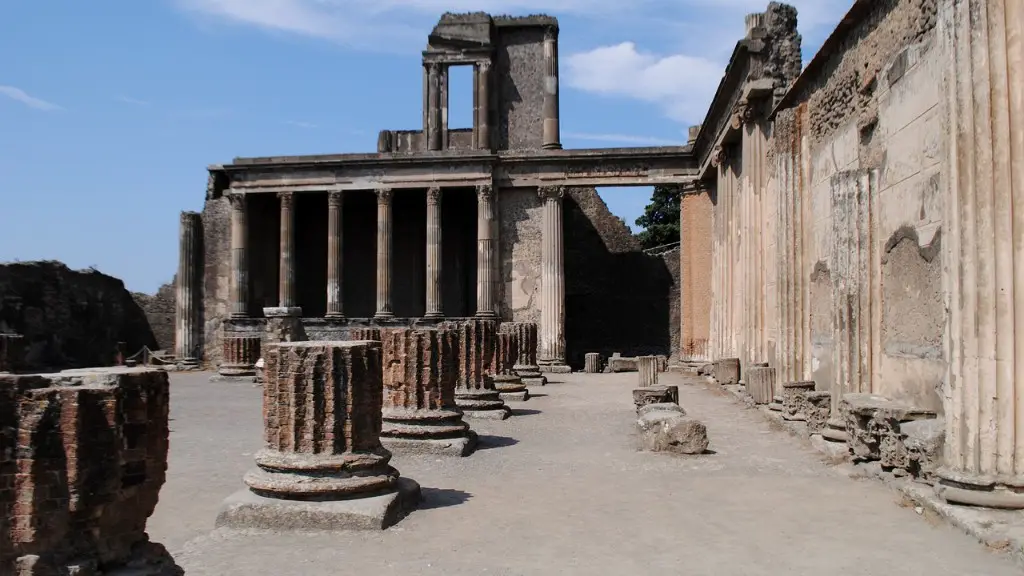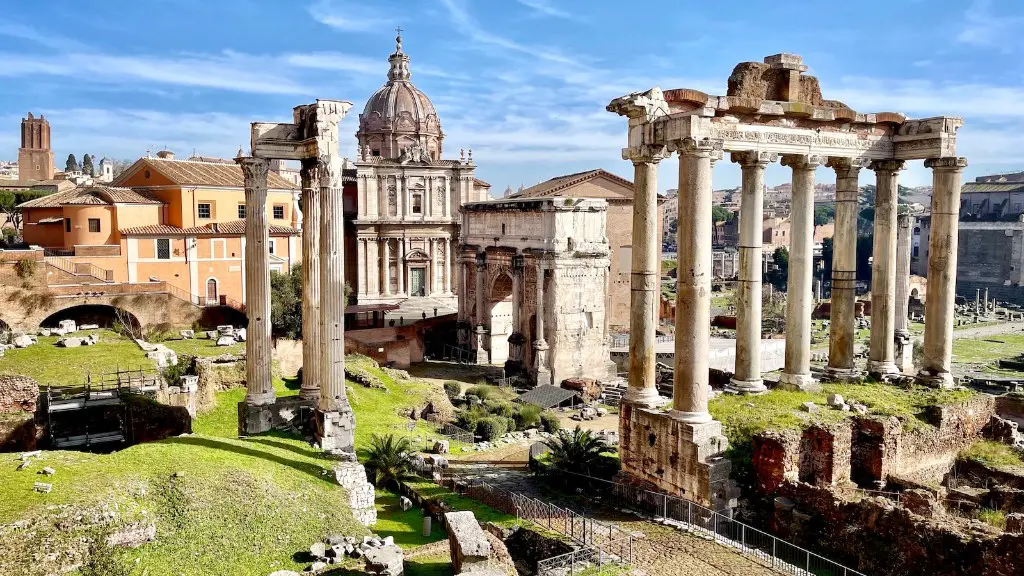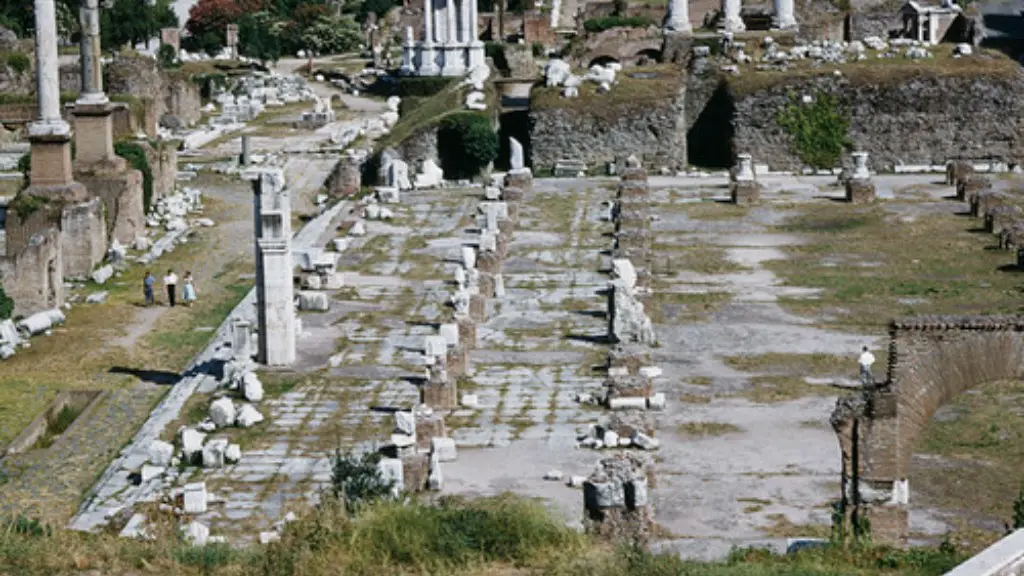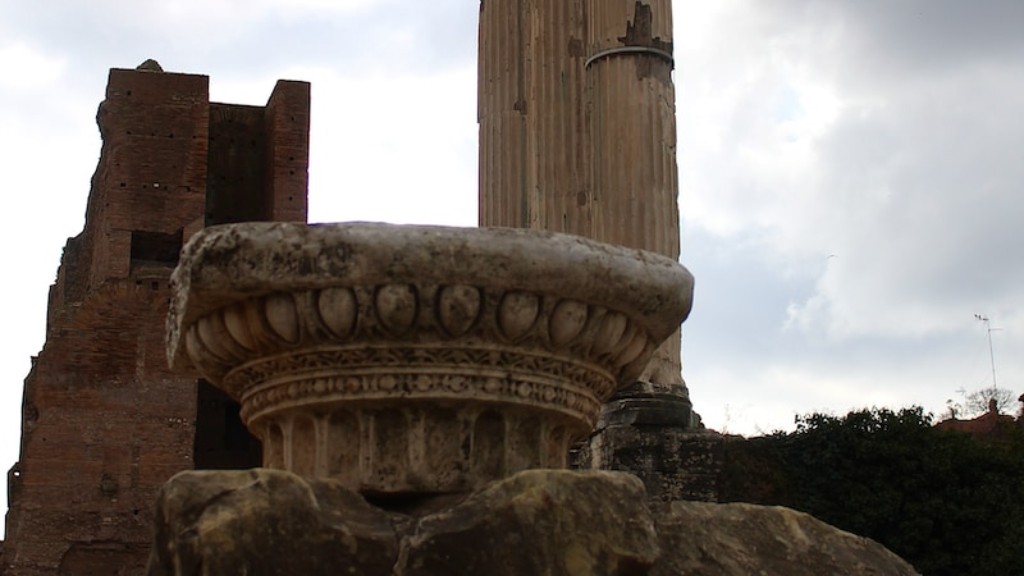The ancient Roman civilization was one of the most powerful empires in the world for centuries. This was in large part due to their military prowess and their willingness to engage in aggressive expansionary campaigns to conquer new territory. While other empires of the time period tended to shy away from conflict, the Romans were always looking for new opportunities to expand their territory and increase their influence. This led to a period of unprecedented growth and prosperity for the Roman Empire, but it also led to a lot of conflict and bloodshed.
Recent historians have argued that ancient Rome was an aggressor state. This view was first put forward by the Italian historian Emilio Gentile in his book The Origins of Fascism in Europe. Gentile argued that Rome was a colonial power that was always looking to expand its territory. This view has been echoed by other historians, such as the German historian Johannes Fried. Fried argues that Rome was an “imperialist” power that was always looking to conquer new territory.
How were the Romans violent?
Even though violence wasn’t the only thing that played a role in Roman identity, it was still a significant part of it. Rome’s foundation myths involved acts of rape, fratricide and war. The brutal rape and suicide of a Roman noblewoman allegedly precipitated the expulsion of Rome’s last king and the formation of its republic.
Rome was founded as a small city state on the Tiber River in central Italy. From the very beginning, Rome had to be an aggressive city state fighting for its survival and independence. Inherently, this brought on a pattern of political behavior that greatly favored an attitude of expansionism, greatly encouraged by human greed. Rome quickly became an aggressive expansionist empire, conquering first the surrounding city states of Italy, then the rest of the Mediterranean world.
How brutal was Roman warfare
It is clear that Gabriel Baker is correct in his assessment that mass violence was vital to Roman military operations. In almost every war they fought during the third and second centuries BC, the Roman legions killed and enslaved populations, executed prisoners, and put cities to the torch. This shows that the Roman military was willing and able to use whatever means necessary to win a war. This brutality was likely a major factor in their success as a military power.
Rome was founded on violence according to legend, and this seems to have set the tone for the city’s history. From the rape of the Sabine women to the bloody battles between rival factions, Rome has always been a city steeped in bloodshed. Even today, violence remains a part of Roman life, with organized crime and political tensions often spilling over into the streets. While this may not be the most positive aspect of the city, it is nonetheless a part of its unique character.
How did the Romans punish people?
Whipping and fines were the most common punishments during the slave trade. Wooden shoes were sometimes placed on the feet of prisoners, making escape difficult. An enslaved person could be forced to carry a piece of wood around their neck that stated their crime.
The training soldiers had to endure was tough, and 20-mile marches in full armor were common. This made the Roman armies very physically fit and well-organized. Training included marching in formation and learning specific tactics and maneuvers for battle.
What was Rome’s biggest threat?
Hannibal Barca was one of the most successful and brutal military commanders in history. He is best known for leading the Carthaginian army against Rome in the Second Punic War. This conflict put Rome in the greatest danger it ever faced, and it took nearly two decades for Rome to finally defeat Hannibal. Even though he was eventually defeated, Hannibal left a lasting impression on Rome and was remembered for his military genius.
The Roman Empire was not built on civility, but on brute force and military strength. Local inhabitants obeyed Roman rule because the alternative was often too horrible to consider.
What three main threats did the Roman Empire faced
The third century was a time of great crisis for the Roman Empire. A series of civil wars, constant threats of barbarian invasions, and economic instability eventually led to the empire’s downfall.
The Roman Army was one of the most successful in the history of the world and its soldiers were rightly feared for their training, discipline and stamina. As a result, the army was a major player in Roman politics and maintaining its loyalty was an essential task for any Emperor. The Emperor needed to ensure that the army was loyal to him and would not march on Rome itself – as had happened on several occasions in the past. To do this, the Emperor had to offer the soldiers good pay and conditions, as well as interesting and challenging campaigns to keep them happy.
What was the most brutal Roman punishment?
The ancient Romans were known for their brutal punishments for criminals. More severe crimes might receive a punishment of putting out the eyes, ripping out the tongue, or cutting off ears. The death penalty included being buried alive, impaling and, of course, crucifixion. The Romans did not hesitate to torture before putting someone to death. While these punishments may seem excessive to us today, the Romans believed that they were necessary to discourage crime and maintain order in their society.
The Roman military was known for their ruthlessness and brutality in achieving their goals. This was especially true when it came to dealing with civilian populations. Commanders in the field would often use mass violence and other brutal strategies to subdue and control these populations. In many cases, this was seen as a necessary evil in order to ensure the success of Roman military operations.
How did Romans treat female slaves
It’s true that women in ancient Greece didn’t have the same rights as men. They couldn’t vote or own land, for example. However, they were still allowed some rights and privileges. For instance, they could be honored for their role as priestesses or as family members. Additionally, they had some citizen rights, such as the right to sue someone in court. Slaves, on the other hand, had no legal or social standing at all. They could be treated like animals by their masters and had no rights whatsoever.
Roman emperors are some of the most ruthless and violent rulers in history. They are famous for their tyrannical reigns of terror, during which they often tortured and executed their enemies. Many of them were also very paranoid, and often ordered the massacre of innocent people who they feared might overthrow them.
What crimes did the Romans commit?
Crimes were punishable by death in Ancient Rome. The Roman people had to deal with many of the same crimes we face today, such as murder, arson and vandalism. Treason against the Empire was the most serious crime. Treason means plotting against the country.
There is no denying that slaves were mistreated in Roman times. They were often whipped, branded or cruelly mistreated by their owners. Even though Romans accepted slavery as the norm, some people – like the poet and philosopher, Seneca – argued that slaves should at least be treated fairly. Unfortunately, this was not always the case and slaves were often subjected to horrific treatment.
Why did the Romans mistreat the Christians
It is often claimed that Christians were persecuted for their refusal to worship the emperor, but it is more likely that the general dislike for Christians arose from their refusal to worship the gods or take part in sacrifice, which was expected of those living in the Roman Empire. Christians were seen as a threat to the Roman way of life, and their refusal to participate in traditional practices was a direct challenge to the authority of the emperor.
Prisons in ancient Rome were often used as areas to hold prisoners until they faced punishment. Prisoners would be treated horribly, although during the later parts of the history of the empire Christian charity could help improve the lives of prisoners somewhat. Prisons would be filthy, underground, and hot.
Warp Up
The ancient Roman Empire was aggressive in many ways. They conquered new lands and territories, and expanded their empire through military force. They also levied taxes and imposed their will on the people they conquered.
The ancient Romans were aggressive in many ways. They were known for their military prowess and their tendency to conquer new lands. They also were known for their political maneuvering and their ability to use force to get what they wanted.





